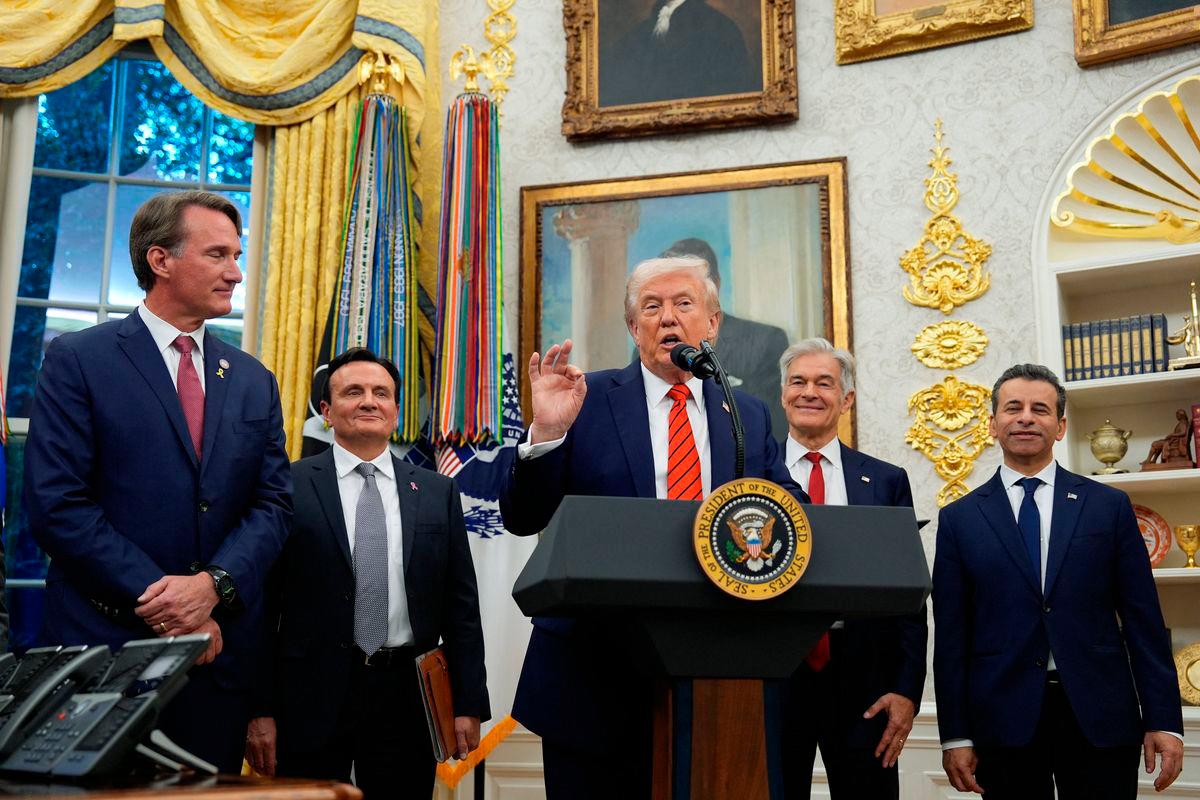
Trump threatens China with Boeing parts export controls
WASHINGTON: President Donald Trump has threatened to impose export controls on Boeing aircraft parts as part of Washington’s response to Chinese export limits on rare earth minerals.Trump made the statement on Friday during a press briefing at the White House.He has frequently used Boeing in his aggressive efforts to reshape global trade since taking office in January.Beijing ordered Chinese airlines to temporarily stop taking deliveries of new Boeing jets during trade clashes with Trump in April.The planemaker has also secured several large sales from foreign carriers following presidential visits.Trump told reporters the United States could target airplane components among other items.“We have many things, including a big thing is airplane,” he said.“They have a lot of Boeing planes, and they need parts, and lots of things like that.”Bloomberg reported in August that Boeing is negotiating to sell up to 500 jets to China.This would mark the US planemaker’s first major Chinese order since Trump’s initial term.Aerospace analyst Scott Hamilton from Leeham Co suggested the financial impact on Boeing would likely be minimal even if the deal collapses.“It’s sandpaper on Boeing’s hide,” Hamilton remarked.China historically accounted for as much as 25% of Boeing’s order book but now represents less than 5%.Aviation analytics company Cirium data shows Chinese airlines have orders for at least 222 Boeing jets.The country currently operates 1,855 Boeing airplanes in active service.Most aircraft on order and in service are Boeing’s popular 737 single-aisle jets.A spare parts export ban would also affect CFM International, the GE Aerospace and Safran joint venture.CFM produces the LEAP engine used on Boeing’s 737 MAX aircraft.GE also manufactures engines for the larger 777 and 787 jets that China has ordered.Boeing’s European competitor Airbus has only 185 orders from Chinese customers according to Cirium.Airbus operates a production facility in Tianjin producing approximately four single-aisle A320 jets monthly.China is attempting to develop its own commercial jetliner industry primarily through the COMAC C919.The COMAC C919 directly competes with the Airbus A320 and Boeing 737 aircraft.Chinese customers have ordered 365 domestically-produced C919 jets according to Cirium data.US export controls on Western-supplied parts for the C919 have significantly slowed its production.COMAC had delivered only five of the 32 jets expected by Chinese customers this year as of September. – Reuters
Since taking office, Trump has frequently leveraged Boeing's position in global trade to advance his administration's objectives. This threat follows Beijing's earlier move to temporarily halt deliveries of new Boeing jets to Chinese airlines during previous trade disputes in April. The President has also been known to highlight Boeing's deals following presidential visits, underscoring the company's importance in international relations.
"We have many things, including a big thing is airplane," Trump told reporters, suggesting the United States could target airplane components, among other items. "They have a lot of Boeing planes, and they need parts, and lots of things like that."
Bloomberg reported in August that Boeing is currently in negotiations to sell up to 500 jets to China, potentially marking the US planemaker’s first major Chinese order since Trump’s initial term.
Despite the potential impact, aerospace analyst Scott Hamilton from Leeham Co. suggests the financial repercussions for Boeing might be minimal even if the deal collapses. He described it as "sandpaper on Boeing's hide." While China historically accounted for as much as 25% of Boeing’s order book, it now represents less than 5%.
According to data from aviation analytics company Cirium, Chinese airlines have orders for at least 222 Boeing jets and currently operate 1,855 Boeing airplanes in active service. The majority of these are Boeing's popular 737 single-aisle jets.
A spare parts export ban would also affect CFM International, a joint venture between GE Aerospace and Safran, which produces the LEAP engine used on Boeing’s 737 MAX aircraft. GE also manufactures engines for the larger 777 and 787 jets that China has ordered.
Boeing's European competitor, Airbus, has significantly fewer orders from Chinese customers, with only 185 according to Cirium. Airbus operates a production facility in Tianjin, producing approximately four single-aisle A320 jets monthly.
China is actively developing its own commercial jetliner industry, primarily through the COMAC C919, which directly competes with the Airbus A320 and